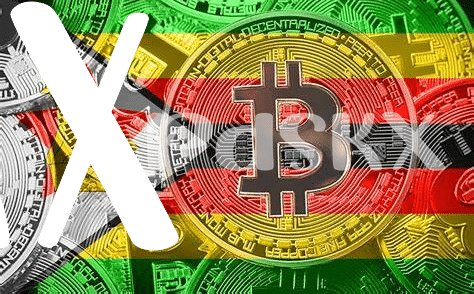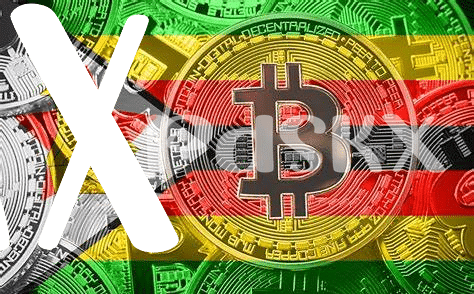Bitcoin as a Decentralized Financial Savior 💰

The decentralized nature of Bitcoin positions it as a beacon of hope for individuals seeking financial autonomy in a world marked by traditional currency limitations. With its ability to operate independently of central authorities, Bitcoin offers a pathway towards financial liberation for those navigating stringent currency controls. Through its decentralized network, Bitcoin presents a tangible solution for individuals in Zimbabwe and beyond, providing a channel for financial transactions beyond the reach of restrictive policies. As a decentralized financial savior, Bitcoin embodies the democratization of financial systems, empowering users with a newfound sense of control over their assets and economic destinies.
Challenges Faced under Zimbabwe’s Currency Controls 🇿🇼
Under Zimbabwe’s currency controls, individuals and businesses encounter significant hurdles when it comes to accessing foreign exchange and making international transactions. The stringent regulations imposed by the government limit the flow of traditional currencies, leading to scarcity and inflated exchange rates. This creates a bottleneck in the economy, hindering trade and stifling economic growth. Moreover, strict capital controls make it challenging for Zimbabweans to preserve the value of their wealth and diversify their holdings. The restrictions also pose barriers to accessing essential goods and services from global markets, further exacerbating the country’s economic woes. In this constrained financial landscape, the emergence of Bitcoin offers a ray of hope. Its decentralized nature and borderless functionality provide a viable alternative for circumventing the limitations imposed by traditional financial systems. By leveraging the innovative features of Bitcoin, individuals and businesses in Zimbabwe can potentially navigate around the hurdles created by currency controls and gain greater financial freedom.
Potential for Bitcoin to Circumvent Restrictions 🔄

Bitcoin provides a unique opportunity for individuals in Zimbabwe to bypass the stringent currency controls imposed by the government. By utilizing Bitcoin, people can engage in financial transactions that are not subject to the same restrictions as traditional banking systems. This decentralized digital currency offers a way for individuals to access a global financial network without the limitations imposed by local regulations. This potential to circumvent restrictions opens up a new realm of possibilities for individuals looking to navigate the challenges imposed by currency controls in Zimbabwe.
Innovations in Bitcoin Enhancing Financial Freedom 🚀

Innovations in Bitcoin are paving the way for a new era of financial freedom. With advancements in technology and a decentralized system, individuals in regions like Zimbabwe facing currency controls now have a viable alternative to traditional financial institutions. These innovations empower people to take control of their own finances, bypassing the restrictions imposed by centralized authorities. The ability to transact seamlessly and securely across borders opens up a world of possibilities for those previously limited by strict regulations. As Bitcoin continues to evolve, it plays a crucial role in democratizing access to financial services and promoting economic autonomy. To learn more about strategies for safely investing in Bitcoin under various regulations, including foreign exchange controls affecting Bitcoin in Venezuela, visit foreign exchange controls affecting Bitcoin in Venezuela.
Impact on Economic Empowerment and Financial Stability 💪
Bitcoin’s rise in Zimbabwe as a tool for economic empowerment and financial stability has provided individuals with a sense of autonomy over their finances. By bypassing traditional restrictions, Bitcoin offers an avenue for Zimbabweans to access global markets and store their wealth in a more secure and stable manner. This newfound financial freedom not only empowers individuals to make independent economic decisions but also contributes to the overall stability of the country’s financial landscape. The ability to transact with Bitcoin provides a level of resilience against economic uncertainties, paving the way for a more financially inclusive and stable future for Zimbabwe and potentially setting a precedent for other nations facing similar challenges.
Future Implications for Global Financial Systems 🌍

Innovation and advancement in the realm of cryptocurrencies, particularly Bitcoin, have sparked discussions about the future implications for global financial systems. The decentralized nature of Bitcoin, coupled with its potential to operate beyond traditional borders and government regulations, presents both challenges and opportunities for the established financial order. As more countries grapple with economic uncertainties and volatile currency controls, the adoption and integration of cryptocurrencies like Bitcoin could pave the way for a new era of financial transparency, autonomy, and resilience.
The evolving landscape of global finance necessitates a deeper examination of how innovations in Bitcoin may reshape traditional financial systems and international transactions. As individuals and businesses seek alternatives to navigate foreign exchange controls affecting Bitcoin, countries like Zimbabwe, Yemen, and Vietnam serve as poignant examples of the complex interplay between regulation, technology, and economic empowerment. By exploring the intricacies of these socio-economic dynamics, stakeholders can better understand the potential long-term implications of integrating cryptocurrencies into the fabric of our interconnected financial world. [For more insights on foreign exchange controls affecting Bitcoin in Yemen, visit foreign exchange controls affecting Bitcoin in Vietnam.]
